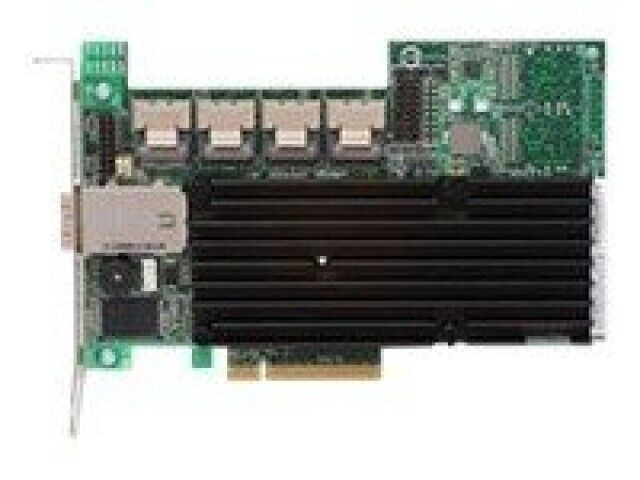Homepage / Electronics / Computers & Accessories / Computer Components / Internal Components / I/O Port Cards / SCSI Port Cards
SAS 9750-16I4E 3ware 16 Internal 4 External 6GB SATA+SAS 512MB Controller
|
Prices shown may differ from Amazon due to dynamic updates, promotions, inventory changes, or item condition (new/used/refurbished).
The final price and availability are confirmed on Amazon at checkout.
Learn more.
|
|
|
|
|
|
As an Amazon Associate, we earn from qualifying purchases. Prices and availability change frequently;
the final terms are displayed on Amazon’s website at the time of purchase.
Pricing Policy.
|
|
| Brand: | LSI |
The SAS 9750-16I4E is a high-performance storage controller designed for servers and workstations that require reliable and fast data access. It supports both internal and external storage devices, making it versatile for various configurations. The controller is ideal for users who need robust RAID capabilities and high data availability in environments with heavy data traffic.
This controller offers support for RAID levels 0, 1, 5, 6, 10, and 50, providing flexibility in data redundancy and performance optimization. It features sixteen internal and four external ports, allowing for a large number of storage drives to be connected simultaneously. The inclusion of 512MB cache helps improve performance by reducing latency during read and write operations.
The SAS 9750-16I4E is compatible with both SATA and SAS drives, including those operating at 3Gb/s and 6Gb/s speeds. This ensures compatibility with a wide range of storage devices, from older models to the latest high-speed drives. It uses PCI Express 2.0 technology, which provides faster data transfer rates and better performance in high-bandwidth applications.
The controller comes with a management tool called 3DM2, which simplifies the creation of RAID volumes and provides extensive control over maintenance features. This makes it easier for administrators to manage storage configurations and perform routine maintenance tasks without needing advanced technical knowledge.
The SAS 9750-16I4E is well-suited for environments where data availability is critical, such as data centers, enterprise servers, and high-performance computing systems. Its ability to maintain stable performance even in degraded mode ensures that data remains accessible even if some drives fail.
Brand: 3ware
Model: 9750-16I4E
Specifications: 16 internal + 4 external ports, 6Gb SATA+SAS, 512MB cache, PCI-E x8, RAID 0/1/5/6/10/50
Features: Supports degraded mode performance, 3DM2 management tool, compatible with SATA and SAS drives
This controller offers support for RAID levels 0, 1, 5, 6, 10, and 50, providing flexibility in data redundancy and performance optimization. It features sixteen internal and four external ports, allowing for a large number of storage drives to be connected simultaneously. The inclusion of 512MB cache helps improve performance by reducing latency during read and write operations.
The SAS 9750-16I4E is compatible with both SATA and SAS drives, including those operating at 3Gb/s and 6Gb/s speeds. This ensures compatibility with a wide range of storage devices, from older models to the latest high-speed drives. It uses PCI Express 2.0 technology, which provides faster data transfer rates and better performance in high-bandwidth applications.
The controller comes with a management tool called 3DM2, which simplifies the creation of RAID volumes and provides extensive control over maintenance features. This makes it easier for administrators to manage storage configurations and perform routine maintenance tasks without needing advanced technical knowledge.
The SAS 9750-16I4E is well-suited for environments where data availability is critical, such as data centers, enterprise servers, and high-performance computing systems. Its ability to maintain stable performance even in degraded mode ensures that data remains accessible even if some drives fail.
Brand: 3ware
Model: 9750-16I4E
Specifications: 16 internal + 4 external ports, 6Gb SATA+SAS, 512MB cache, PCI-E x8, RAID 0/1/5/6/10/50
Features: Supports degraded mode performance, 3DM2 management tool, compatible with SATA and SAS drives
Customer Reviews (0)
write a review
(No reviews found. You may write the first one!)
(No reviews found. You may write the first one!)

